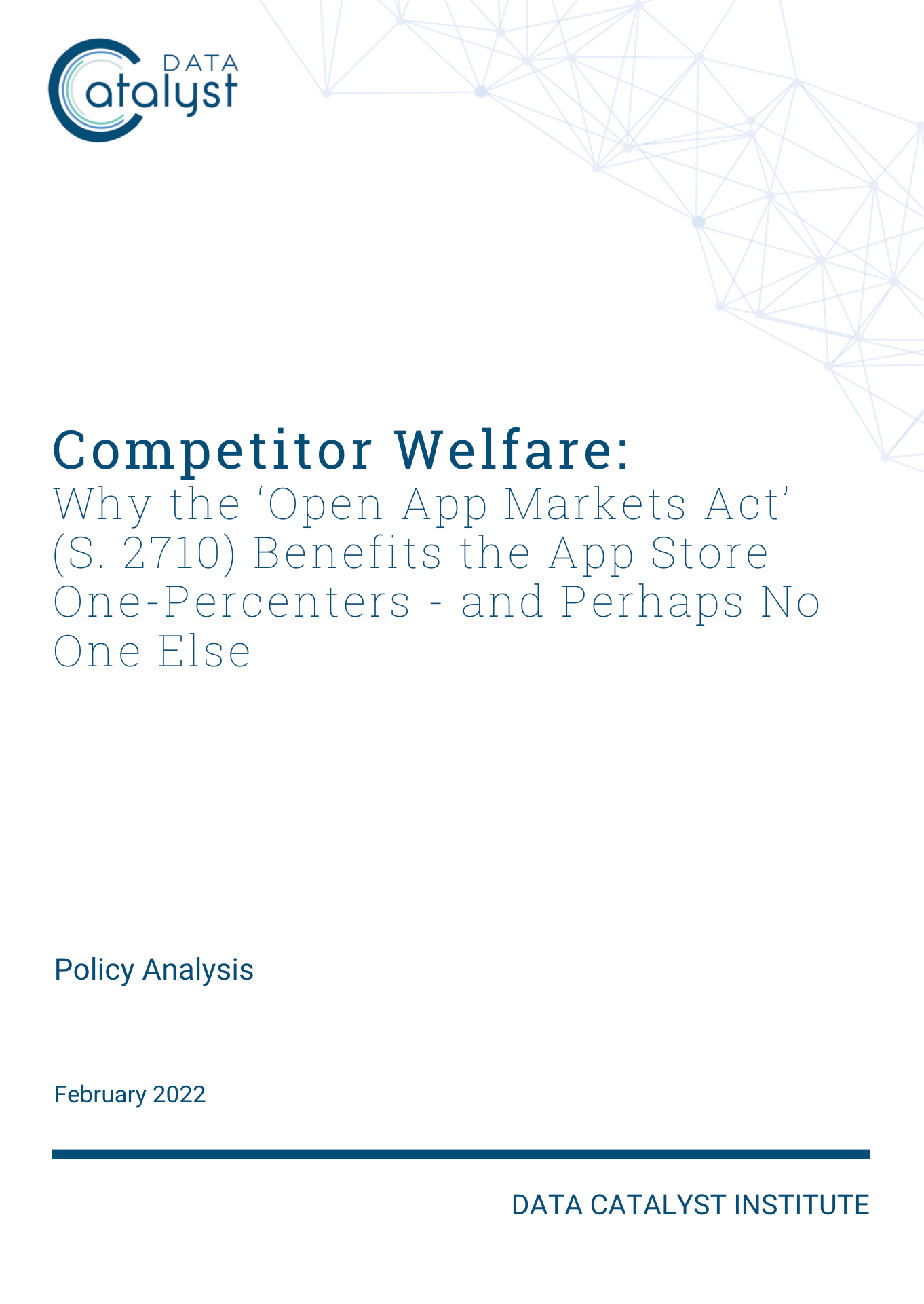
Competitor Welfare: Why the Open App Markets Act (S. 2710) Benefits the App Store One Percenters – and Perhaps No One Else
February 2022
We analyzed the Open App Markets Act (S. 2710) from the point of view of small app publishers (small businesses typically with less than 20 employees) whose products make up the broad majority of available smartphone apps across both major app stores.
- Across Apple- and Google-powered smartphone app stores, there are about 4.5M apps available to download. Despite the array of options, the average person keeps less than 100 apps on their phone, many of which are rarely used. And yet, there are thousands of new apps published and roughly 200 million app downloads each year. It’s apparent – for both app publishers and consumers alike – that competition and choice are alive and well in app stores.
- “Populist Antitrust”-inspired legislation such as the Open App Markets Act (S. 2710) dispenses with the objective concept of consumer welfare in favor of subjective “competitor welfare.” This theoretically seeks “an even playing field” by taking into consideration not economic harm to consumers, but economic harm to competitors or parties in business arrangements with each other – like app publishers and app stores.
- The top one percent of app publishers, with millions of users and multi-billion dollar company valuations, drive the discussion on antitrust controversy surrounding app stores – subduing the voices of hundreds of thousands of “working class” ones. Accounting for the other 99 percent, these working class app publishers make an average app-driven revenue of $40,000 per company per year, finding themselves at the mercy of the 1 percent of very large app publishers in the antitrust debate.
- Our preliminary research on the disconnect between working class app developers or publishers and national policymakers suggests that most developers do not adequately follow legal and policy debates about tech platforms and app stores, and a majority is not willing at all to engage with policymakers.
- Congress should not pass the Open App Markets Act (S. 2710) or similar legislation related to large technology platforms and services without adequately considering the voices of small app publishers (i.e., small businesses) and the broader software developer community to understand the possible economic and other effects on them. At the least, open hearings that include a spectrum of different kinds of app publishers – large and small, B2C and B2B, in various industries – should be held.

Competitor Welfare: Why the ‘Open App Markets Act’ (S. 2710) Benefits the App Store One-Percenters - and Perhaps No One Else
Data Catalyst Institute
February 2022